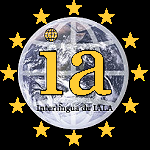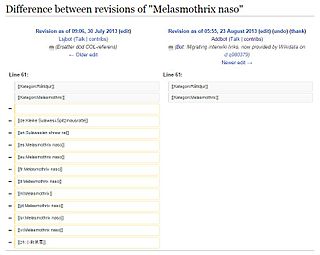| Look up interlanguage in Wiktionary, the free dictionary. |
An interlanguage is an emerging language system in the mind of a second language learner.
An interlanguage is an idiolect that has been developed by a learner of a second language which preserves some features of their first language, and can also overgeneralize some L2 writing and speaking rules. These two characteristics of an interlanguage result in the system's unique linguistic organization.
Interlanguage or interlingual may also refer to:
- Interlanguage, a term in interlinguistics referring to any language used between people who cannot communicate by means of their first languages
- Interlanguage, a synonym for pivot language, an intermediary language used as a tool for translation between many different languages
Interlinguistics, as the science of planned languages, has existed for more than a century as a specific branch of linguistics for the study of various aspects of linguistic communication. Interlinguistics is a discipline formalized by Otto Jespersen in 1931 as the science of interlanguages, i.e. contact languages tailored for international communication. In more recent times, the object of study of interlinguistics was put into relation with language planning, the collection of strategies to deliberately influence the structure and function of a living language. In this framework, interlanguages become a subset of planned languages, i.e. extreme cases of language planning.
A pivot language, sometimes also called a bridge language, is an artificial or natural language used as an intermediary language for translation between many different languages – to translate between any pair of languages A and B, one translates A to the pivot language P, then from P to B. Using a pivot language avoids the combinatorial explosion of having translators across every combination of the supported languages, as the number of combinations of language is linear, rather than quadratic – one need only know the language A and the pivot language P, rather than needing a different translator for every possible combination of A and B.





